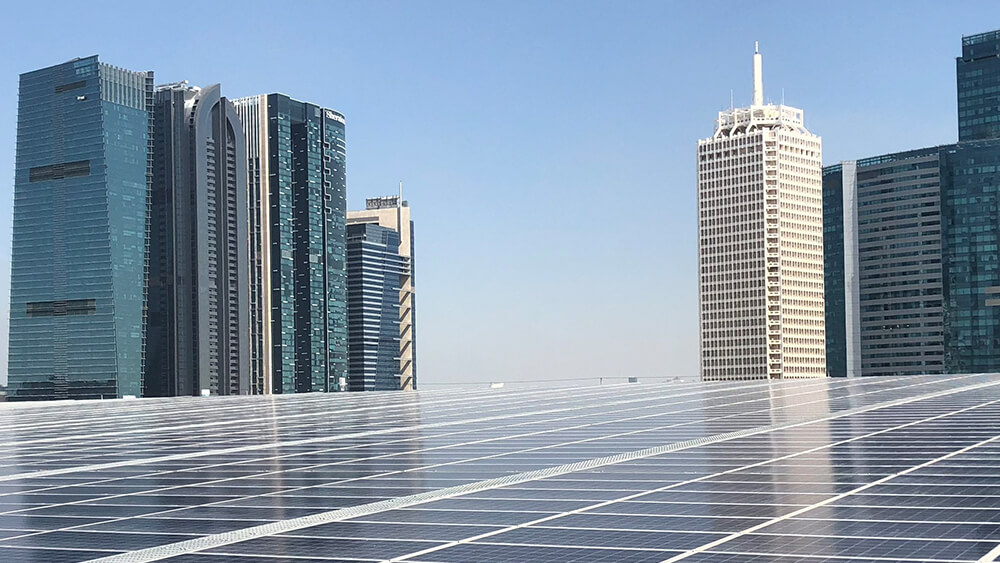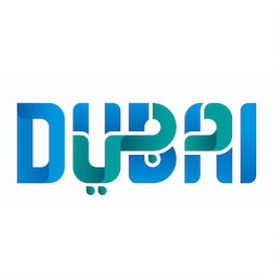Last month, Dubai’s commitment to clean energy and technology made it the first Middle Eastern city to join the Global Destination Sustainability Index (GDS-Index ) — a group dedicated to highlighting best practices and responsible business-tourism initiatives. “Issues around sustainability are of paramount importance across all sectors in Dubai,” GDS-Index explained in its announcement. In fact, sustainability is so important to the city, the destination plans to produce 75 percent of its energy from clean sources by 2050.
The wider United Arab Emirates (UAE) is investing up to $163.3 billion to achieve the goal of generating most of its power from clean energy sources in the next 30 years, while revolutionizing the energy sector. There’s currently a 113-acre sustainable city being constructed 18 miles outside central Dubai that’s designed to produce more energy than it consumes. Also just outside the city is Mohammed bin Rashid Al Maktoum Solar Park, the world’s largest single-site solar park, projected to generate up to 1,000 megawatts of clean energy by 2020 and 5,000 megawatts by 2030.
“Projects like that are what really created the market,” Taher Diab, Dubai Supreme Council of Energy’s strategy and planning director, said at the MENA New Energy 2017 conference, held in Dubai. “Now we see other countries replicating what’s happening in Dubai and taking advantage of the lower prices.”
Meeting venues in Dubai are also committed to going green. Through its food-waste initiative, the Dubai World Trade Centre (DWTC) works with local charities to ensure all post-event food goes to those who need it, partnering with the United Arab Emirates Food Bank to optimize the process. All consumable food that would otherwise be wasted is picked up by the food bank for storage. Or other charities, like Emirates Red Crescent, deliver it via trucks around the city. In 2017, approximately 3 percent of the conference center’s total production of food went to the food bank.
Not only is DWTC focusing on food waste, but the convention center is also transitioning to clean energy sources. More than 3,000 solar panels installed on the DWTC’s roof, over Sheikh Rashid Hall, help save the venue 2,000 tons of carbon dioxide each year. The 1-megawatt system covers more than 6,600 square meters of rooftop. “The adaptation of commercial and industrial scale solar power in the UAE is growing as more companies see the benefits — not only environmentally, but also in terms of savings,” said Ayham Mkalalati, director of business development at Enviromena, which installed the panels. “The rooftop solar installation at DWTC is expected to have a five-year payback period.”
Dubai’s Department of Tourism and Commerce Marketing has also provided all of the city’s hotels with a “12 Steps Toward Sustainability” manual, a sustainability board game, and a carbon calculator, helping enforce best practices in areas like energy and water conservation, waste management, and sustainability engagement. “Reflecting outstanding work in the field of green tourism, this pioneering document published by Dubai Tourism under the DST (Dubai Sustainable Tourism) initiative serves as a valuable guide to help create a sustainable future for our tourism industry,” said Yousuf Lootah, Dubai Tourism’s executive director of tourism development and investments. “With more than 700 hotels operating in the first six months of 2018 alone, Dubai undoubtedly has the potential to strategically position itself as a landmark for sustainability by ensuring all hotel properties are engaging in responsible practices.”


